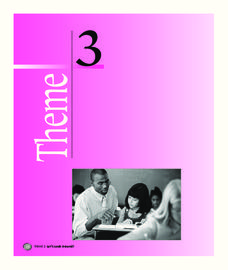E Reading Worksheets
Making Predictions #1
How can you tell what is going to happen next in a story? Learn to make predictions with five sections of stories. Kids read the beginning, and then write what they believe will happen next. Additionally, they provide evidence for their...
E Reading Worksheets
Making Predictions #3
Sometimes it's helpful for kids to predict what is coming next when reading a story. Show your learners how to use evidence from the text they are reading to predict what happens next in five short passages.
Novelinks
Walk Two Moons: Story Impressions
Story chains connect literary concepts, reinforce context clues, and even help learners predict what's coming next! Using words from the next chapter of Sharon Creech's Walk Two Moons, middle schoolers craft story chains to...
DLTK
Groundhog Paper Craft
Get crafty this Groundhog's Day with a hands-on activity that combines creativity and making predictions. Scholars color, cut out, and put together a friendly image of a groundhog and showcase whether they feel the weather will be sunny...
School Specialty
The Tortoise and the Hare - Drawing Conclusions/Predictions Outcomes
Does the fastest one always win the race? Look deeper into The Tortoise and the Hare with a set of discussion questions for before, during, and after reading the story.
Novelinks
Tuck Everlasting: Directed Reading Thinking Activity
Encourage close reading for young learners with a lesson based on Natalie Babbitt's Tuck Everlasting. The first part of the resource guides readers through a Directed Reading Thinking Activity (DRTA), prompting them to make...
K12 Reader
What Happens Next?
While your students may not be psychics, that doesn't mean they can't predict what will happen next in a story. To hone this important reading comprehension skill, young learners read a series of three short...
Houghton Mifflin Harcourt
Three Skeleton Key
Encourage your middle schoolers to interact with the text as they read. While reading "Three Skeleton Key," class members note predictions, define words and study their meanings, take notes on how the suspense builds, and jot down...
K20 LEARN
Considering "Charles": Pictograms, Annotations, Reading Strategies, And Multimodal Responses
Shirley Jackson's short story, "Charles," provides middle schoolers with an opportunity to practice their close reading skills. Using the provided list of prompts, scholars read and reread the story, then create a multimodal response to...
Curated OER
Mini-Lesson Planning for Inferences
Making inferences and drawing conclusions is a key component to successful active reading. Encourage your class to use context clues and prior knowledge to infer different elements of a story, including the setting, plot, and character...
Houghton Mifflin Harcourt
Let’s Look Around!: Challenge Activities (Theme 3)
Let's Look Around! is the theme of a unit that offers a plethora of challenge activities. Enhance your scholars' learning experiences and reinforce concepts with activities such as writing a book about farm animals, an...
K20 LEARN
OPTIC - A Reading Strategy Recipe: Visual Literacy
A visual literary lesson provides learners with OPTIC (Observations, Predictions, Themes, Inferences, Conclusions), a reading strategy to help them understand and interpret visual and written texts. Scholars practice the strategy with a...
K5 Learning
The Fox and the Little Red Hen
Read about the fox family that decides to cook a hen for dinner. After reading, individuals answer questions about the elements of plot in the story. They require drawing conclusions, making predictions, and describing specific...
Novelinks
Touching Spirit Bear: Directed Thinking Activity
Can you guess what is going to happen in a story just by looking at the cover? Readers engage in a directed-reading activity in which...
K5 Learning
One of Aesop's Fables
It's one thing to have an idea, but someone has to put it into action! Young pupils read a rendition of Aesop's fable of the mice in the council before answering four questions about details from the text.
Curated OER
Out of the Dust: Questioning Strategies
Bloom's Taxonomy is a great way to address the many levels of comprehension. With explanations and examples of each level, you can create questions that focus on knowledge, comprehension, application, analysis, synthesis, and evaluation.
Cleveland Metro School District
Novel Lesson for The Giver
Lois Lowry's The Giver is one of the most engaging and thought-provoking works of literature in the middle school curriculum. Round out your novel unit with a collection of reading activities, comprehension questions, memoir and...
Curated OER
The Old Man and the Sea: Anticipation Guide
Begin your unit on Ernest Hemingway's The Old Man and The Sea with an anticipation guide. As kids read 12 statements that relate to the novel's themes, they decide whether each is true or false in their own opinion.
Curated OER
Pudd'nhead Wilson: Anticipation Guide
Get your pupils thinking about some of the big ideas present in Mark Twain's Pudd'nhead Wilson with this anticipation guide. Learners decided if they believe a series of statements are true or false. A discussion follows.
Curated OER
The Outsiders: Anticipation Guide
The Outsiders by S.E. Hinton is always a favorite for middle and high school readers because it addresses issues that hit home to them, decades after the book is set. Have learners fill out an anticipation guide that encourages them to...
Read Works
Read Works: The Sandwich Thief
[Free Registration/Login Required] A literary text that asks the reader to make predictions about a boy named Mike who decided to make himself a sandwich. A question sheet is available to help students build skills in reading comprehension.




















